
Whether they happen to humans or our pets, few things are as petrifying as seeing a loved one completely helpless and not knowing how to help.
Seizures are not more common in chinchillas than in other animals, but they do happen.
And if your chinchilla has a seizure, you need to know what to do to help.
It also helps to know what can cause seizures, so you might be able to prevent them in the first place.
Keep reading to learn everything you need to know about chinchillas and seizures.
Contents
Chinchilla Seizures
When I first adopted my chinchilla, seizures were not a topic of discussion with my local chinchilla breeder, and it honestly was not something that even crossed my mind until a few years later.
I have now been raising my chinchilla for 5+ years, and while she has not yet had a seizure, I naturally get curious about potentially deadly health issues that may arise.
I do my best to stay on top of my game, so I can act quickly to provide her the best care possible in case the worst situation does ever take place.
With seizures, it is honestly something that you should be prepared for and something you want to understand if you own a chinchilla now, recently adopted a chinchilla, or intend to adopt a chinchilla soon.
Before you can actively take precautionary measures and understand what to do if your chinchilla does have a seizure, it is essential to understand what may cause a seizure to take place.
Chinchilla Seizure Causes
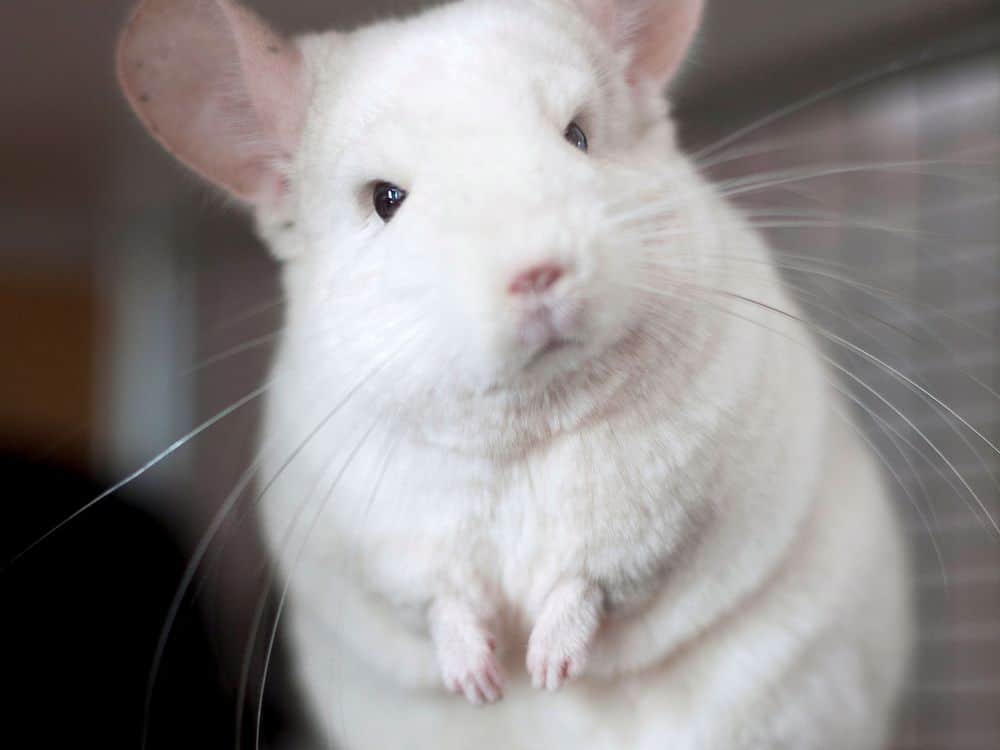
There are a few common reasons that can cause seizures in chinchillas. Some of these causes can spark this unfortunate event more frequently than others.
Here is a quick look at some of the common causes of seizures with chinchillas.
Heat Stroke And Overheating
Heatstroke and overheating are one of the top reasons for seizures in a chinchilla. The reason for this is simple.
Many new chinchilla owners are not always aware of just how fragile a chinchilla can be when it comes to temperature control and ensuring your chinchilla never gets too hot.
Getting too hot can easily lead to heatstroke. It can also lead to seizures and potentially even death.
Ensure your chinchilla always has the ideal temperatures. This means keeping it under 75 degrees F and also keeping relatively low humidity levels.
Do that, and heat stroke won’t be a possible reason for your chinchilla having a seizure.
Head Trauma
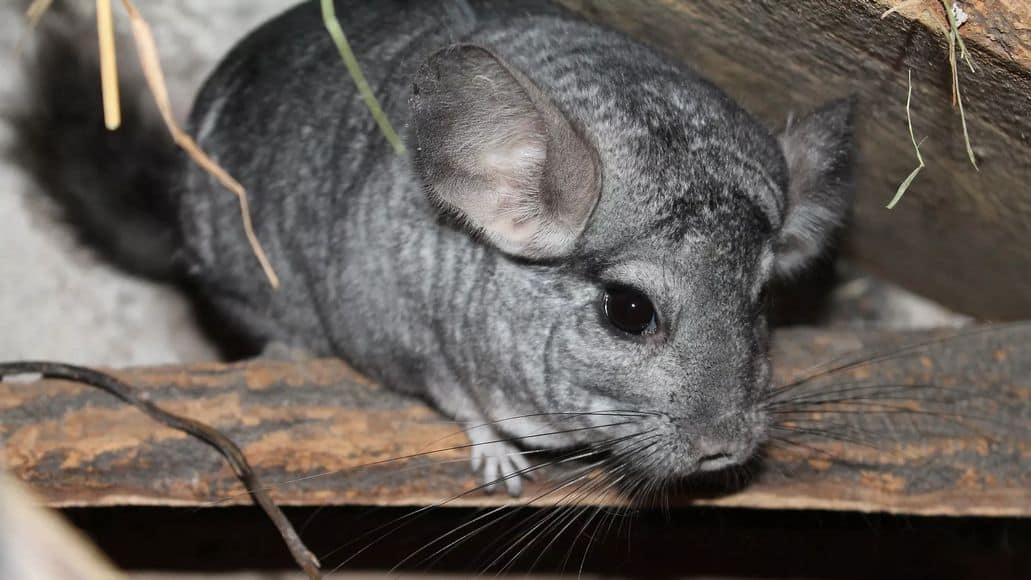
There are many possible causes of head trauma. It could be from a fall outside of the cage. It could also be from an accident that takes place inside the cage.
Head trauma could also occur if you have two chinchillas housed together that fight. Whatever the cause of the head trauma, it could potentially cause your chinchilla to have a seizure.
Calcium Deficiency (Listeriosis) / Thiamine Deficiency
This is one of the other more common causes of a seizure with a chinchilla and is technically due to an inadequate diet.
It could also be caused by using unsafe treats or unsafe foods to feed your chinchilla. Therefore, it is imperative to always use the best chinchilla pellets.
Additionally, you need to understand what a chinchilla can eat and what they cannot eat to help avoid this potential cause for a seizure and to ensure your chinchilla is always being provided the best diet possible.
Hypoglycemia
Hypoglycemia is when your chinchilla experiences a sudden drop in blood sugar levels. This is another potential seizure cause that results from an unhealthy or an inadequate diet.

It is also possible that this happens to your chinchilla due to genetics. Not much you can do about that, but it vital to always provide your chinchilla with the best diet possible.
Some chinchilla owners have even reported that this occurs when they attempt to get them out of the cage or when they attempt to hold their chinchilla.
One thing you can do is offer your chinchilla some kind of treat (like a raisin) when you let it out of the cage, to make sure its sugar levels are up prior to interaction.
Genetic Disorders Like Epilepsy
While uncommon, it is possible that your chinchilla experiences seizures due to a genetic issue like epilepsy.
This is one of the reasons it can be extremely beneficial to adopt a chinchilla from a local chinchilla breeder near you.
Ensure that you get as much information from your breeder and learn about the parents of your chinchilla. Always ask about potential health concerns that may arrive in the future based on the health history of the mother and father.
Bacterial And Fungal Infections
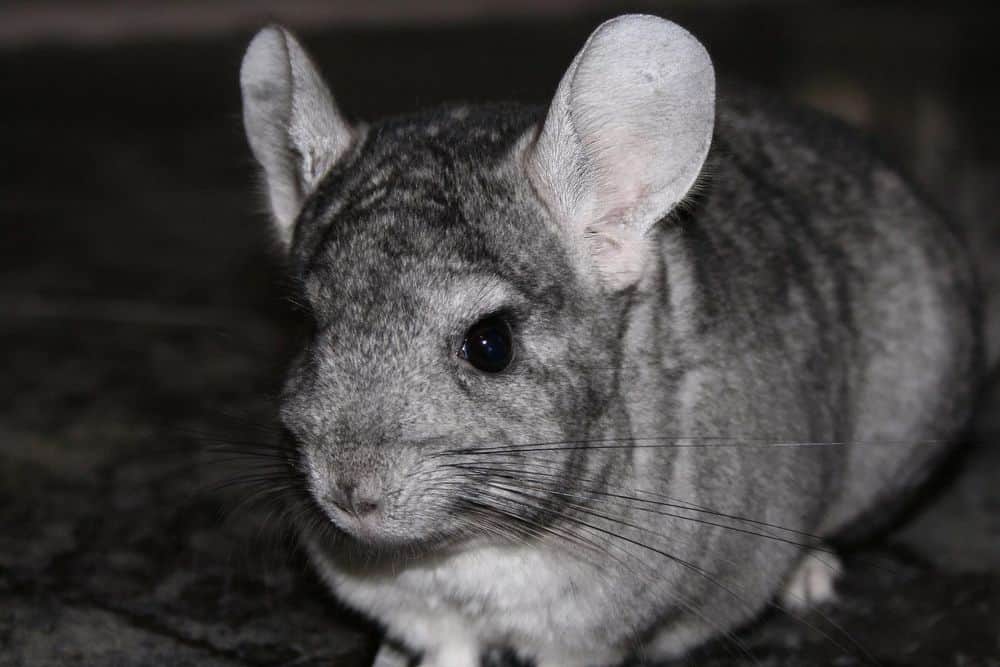
There are many possible causes for bacterial and fungal infections. You will need a vet to help diagnose the potential cause and underlying illness, if this happens to be the cause of the seizure.
Chinchillas may get a fungal infection due to getting wet or due to other external factors. Trust me, work with a vet to help diagnose this potential cause of a chinchilla seizure.
Poison
Chinchillas are known to run around relatively crazy when they are afforded time out of the cage. This is one of the reasons it is always imperative to chinchilla proof a room entirely.
When you do this, make sure that no harmful substances are left within your chinchilla’s reach. This could include any household cleaners and even artificial or real plants in the home used for decorative purposes.
If a chinchilla ingests something it should not, it could potentially be the cause of a seizure.
Recognizing A Chinchilla Seizure
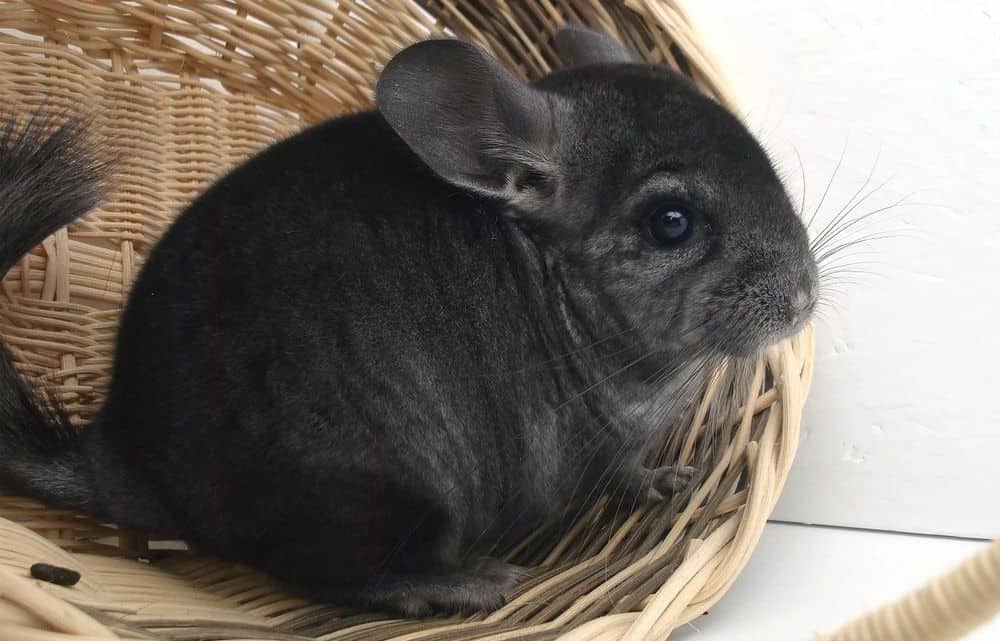
Recognizing a seizure is usually straightforward. They usually present with your chinchilla suffering from violent spasms. You may also notice your chinchilla’s nose twitching.
You may notice your chinchilla body lying on its side, laying out flat, or potentially curling up during the spasms. Often its body may become stiff.
One thing to keep in mind is that although seizures with chinchillas often present with spasms, it is also possible your pet suffers a seizure more closely resembling an absence seizure. This makes your chinchilla appear more “out of it.”
What To Do If Your Chinchilla Has A Seizure
If your chinchilla has a seizure, it is possible that it may last anywhere from just a few seconds all the way up to a few minutes.
When the seizure is taking place, you will want to let it run its course until the seizure is complete. While this may seem scary, it is how seizures work with us humans as well.
Typically, a seizure is going to be fast and over quickly and likely will not occur again.
Treatments For Chinchilla Seizures
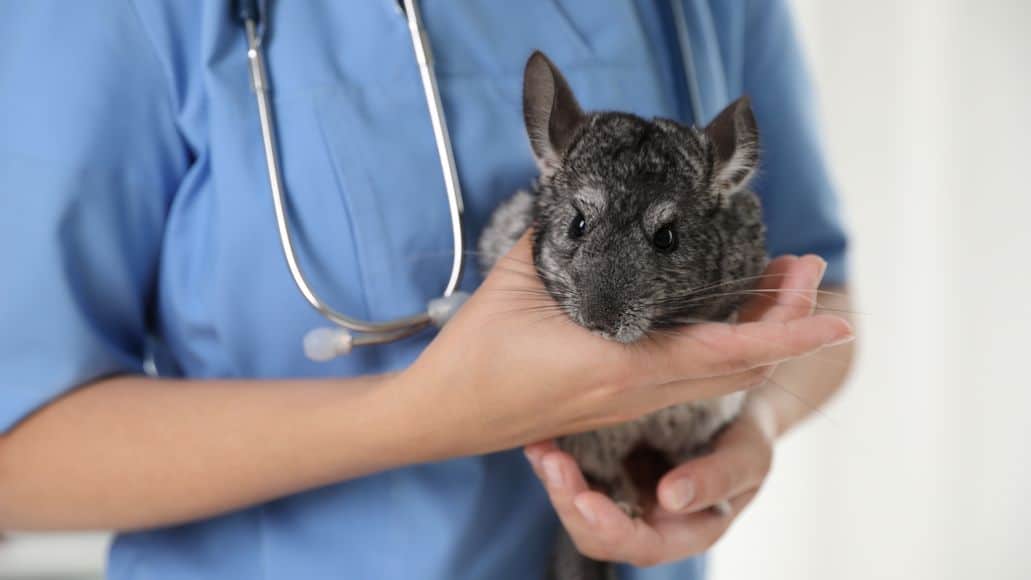
When it comes to treating seizures for your chinchilla, you need to rely heavily on an experienced and knowledgeable vet.
Let them find the root cause of the seizure, treat the seizure, and allow them to explain what you should do next.
In the case of overheating, be sure to call your vet first and explain the situation. Additionally, take active steps to cool your chinchilla down in this situation. Avoid stressing it further.
Some vets may offer some alternative advice with a chinchilla due to their natural tendencies to get stressed heavily during travel.
Because of this, your vet may recommend waiting a certain amount of time before attempting to travel into the office.
Overall, I would personally not try to treat and diagnose a seizure myself. Start with that phone call to your vet. Chinchillas don’t need to see the vet often, but this is one case where they do. Let the vet give you further instructions. Better safe than sorry in these situations.
Chinchilla Seizure: Final Thoughts
While seizures may not be common with chinchillas, they are certainly still something to be aware of.
Understanding how to recognize a seizure, what causes a seizure, and what to do if your chinchilla has a seizure could make a big difference someday for you and your chinchilla’s long-term health.
Be sure to always provide the best care possible to your chinchilla and always provide it a healthy diet.
Chili and I wish you the best of luck with your chinchilla and the journey you have ahead of you. Chili and I also hope you never have to deal with or witness a seizure with your chinchilla in the future.
Has your chinchilla had a seizure in the past?
Has your chinchilla ever experienced a seizure in the past?
How did you recognize your chinchilla was having a seizure, and what did you do to help your chinchilla during this unfortunate circumstance?
Be sure to share those thoughts, stories, and concerns by dropping a comment below.
As always, Chili and I appreciate you stopping by and reading today, and we will see you again next time.
Elizabeth kendall says
So my chinchilla has had 3 seizures in a span of atleast an hour and I was wondering what I could do for him. Atleast figure out what the problem is at home before going to a veternarian to see if I could treat it at home.
Josh says
I would just go see a vet. Or at least talk to one on the phone. Better to be safe.
Brandie says
My baby chinchilla (who is inbred by brother and sister, which I was told was 2 brothers 🤦🏻♀️) had 2 seizures a few weeks apart. The 1st wasn’t too bad involuntary movements looking fatigued and disoriented, and then snapped out of it. The one this week lasted longer and was way worse. She looked lethargic and eyes closing then really strong involuntary movements and then calling up and falling over. Then she ran under the cage and her hind legs shot up and she was going in a circle. She got scared and tried to climb the walls. I was trying to hold her to help but it was all too much. And then she snapped out of it and was fine. She’s about 8 weeks old. My vet checked her ears for infection, and did a full blood workup and fecal test. I’m waiting for the results. I love her so much, she loves life and loves being with me.
Josh says
That sounds scary. I really hope it turns out to be nothing serious.